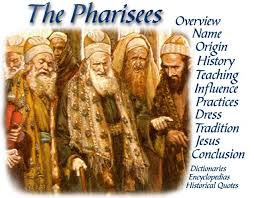
Don't Forget to
The Context of the First century writings will be our focus of study in this series. I will show the beliefs and dogmas of each religious groups and its political influences. Also, we will study the core issue in the first century and the hate the house of Shammai displayed against the Goyim.
How many types of Pharisees in the First Century?
The Jerusalem Talmud also criticizes the Pharisees in like manner. The Talmud describes seven types of Pharisees, five of whom are hypocrites, and two that are good:
Hypocrites
- The Pharisee "shoulder" exhibited their good works before men as if they carried a badge of honor on your shoulder or chest. Yeshua began his allegations with references to this type of Pharisee (Matt. 23:4).
- The Pharisee "expect to see" someone would ask him to wait a moment to see who could perform some charity.
- The "blind" Pharisee close its eyes to avoid seeing a woman, even if it meant stumbling or bumping against the wall.
- The Pharisee "mortar" walked with his head down to avoid seeing any temptation.
- The Pharisee "counter" was always telling his good deeds to see if countered his evil deeds.
Good Pharisees:
- The "God-fearing" Pharisee, who was a good and virtuous man
- the Pharisee "lover of God", who had a real love of Elohim
The Priestly family:
- AnásBen Seth(6- 15)
- Eleazar Ben Ananus (16- 17)
- Joseph Ben Caifás (18-36/37), married to the daughter of Anás(Juan 18:13 )
- Jonathan Ben Ananus (36- 37)
- Teófilo Ben Ananus (37- 41)
- Matthias Ben Ananus (43)
- Ananus Ben Ananus (63)
Oops, this is members-only content
This page requires at least a Basic level membership to access the teaching.
Audio
Oops, you don't have access to this content
Resources
The following is a list of recommended resources for this teaching:
- No additional resources at this time...
Categories
34 thoughts on “First Century Context of the First Century Writings (Complete Series)”
Leave a Comment
You must be logged in to post a comment.

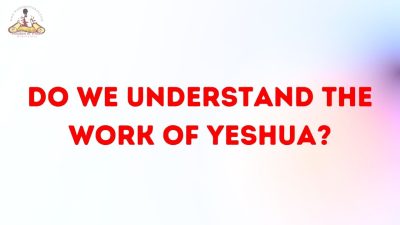
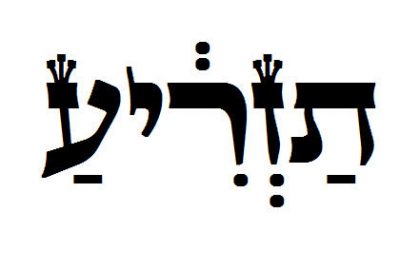

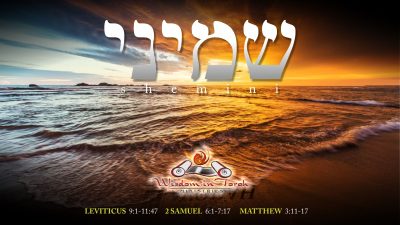
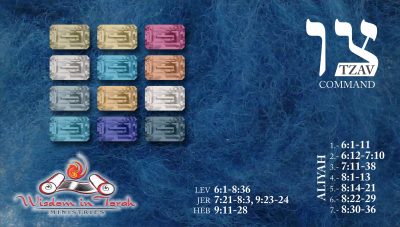
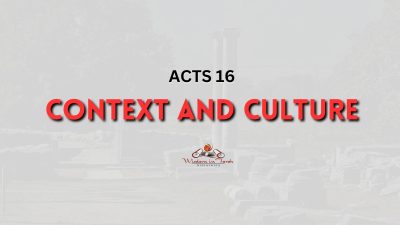
shalom This has been a great Teaching thank you so much Rico, its been a humbling exsperience for me personally and ive learned so much.
all praise goes to Abba Yhwh for this.
also i want to say thank you for helping me and my Family your a good brother Rico.
I will continue to pray for you and your Family too and all Mishpocha.
love you all dearly.
Baruch hashem YHWH
I am unable to view part 6
Just updated it, should be working now. Enjoy!
I like the question you mentioned about having legal right to change the dates. I’ll be using that one while recognizing their passion and zeal to follow Torah and “do it right” but where’s the legal process for changing the dates? Good question! Thanks Rico!!
I have a question – why did the Jerusalem Council have the authority to overrule the Sanhedrin on the gentile question? I agree that things needed to be changed, but according to what you are saying about the legal government, wouldn’t the Jerusalem Council have been committing treason? Or am I missing something? Or would this be something more like state law vs federal law? Or is it because by rejecting the King, that Sanhedrin became illegal? Help! I am officially confused 🙂
The problem for Judeans of 1st Century; was they had an established process for the stranger, the sojourner and the prostylite – but there was none established for re patriation. Just like today; someone might loose their citizenship and latter wish to return and there is a process for that.
Our problem today, is many fold. Why? There are many folds. There is no standing temple, nor authorized priests; we are only in the teaching stage; and yes there is an identity issue. We have groups “Jews and Gentiles” worshiping together, and “Jews and Christians” and Hebrew Roots, and Jewish roots and Messiianic this and that; and a gov’t that’s supposed trying to kill us all. Why would Yeshua, sent out His sent ones to go to the lost tribes of Israel? After 70 AD they had no place to come back to and most of His followers died. The rest got changed into Roman Catholism, Christianity and so why? If the trouble is going to be greater than ever the world has known, then we may be scattered all over again and or dead. Is anyone in Israel going to take our children and grandchildren to keep them safe?
Good teaching Rico! It just gets clearer and clearer. Our problems always result from miscommunications and not using the right terminology. So much confusion, distortion and hurt feelings because of miscommunications. Then throw in our personalities, fears, hot-headedness, stubbornness and Oh Vey! we get problems and divisions. We’re all learning and we all have got it wrong in some way – so how can we be so dogmatic and critical? We have to calm down, listen first, and love each other. Hallelu Yah – He is merciful, compassionate, righteous, just, loving, forgiving!
Lust(s) comes in many forms. Emotions; yes we are to be self controlled. Do you have high blood pressure?
Thank you so much for this teaching!
Rico, question—> Regarding the Sacarii in part 2, where Sacarius meant “man-dagger”. Were they considered a mafia-mob type group of their day? Thank you.
The Sacarii would have been more akin to freedom fighters. While it is true that some of them would hire out their assassination services, most of them focused their killing on Romans and Roman supporters in a hope to free Judea from Roman rule.
That’s cool. That sounds like what Barabbas could have been involved in.
Brother Rico, Fabulous teaching! So glad you’re faithful to the Word of God:) Also appreciate that you welcome questions, so I have 2:
1. Where did the Kabbalists come from? I’ve been encountering many of them lately – they’re approachable and seemingly diplomatic and don’t seemed threatened by my beliefs.
2. I dislike being referred to as a Gentile. I can understand why the Orthodox Jews would refer to me that way, but is it OK to be called a Gentile by Messianic Jews? In 1st century times, a gentile was a non-believer and not in covenant with God. The gentiles in Ephesians 4 are blind and walk in spiritual darkness, so isn’t it an oxymoron to be referred to as a gentile believer?
Shalom,
DeVora Clark:)
That was worth waiting for, but my husband didn’t enjoy that last part. Very much looking forward to the next installation.
In terms of literal and spiritual application, I like to refer to Deut. 29:9. Yahweh says if we keep and do His commandments, we will “Sakal” in all we do. The word Sakal is translated prosper in the English and gives the appearance of prosperity if I walk obediently. But the word actually means “to discern, understand, have revealed.” In that sense the LITERAL walking in the Way of Yahweh brings the SPIRITUAL understanding of why we do what we are doing for the Kingdom. Thank you Rico for taking the time to study this and share!